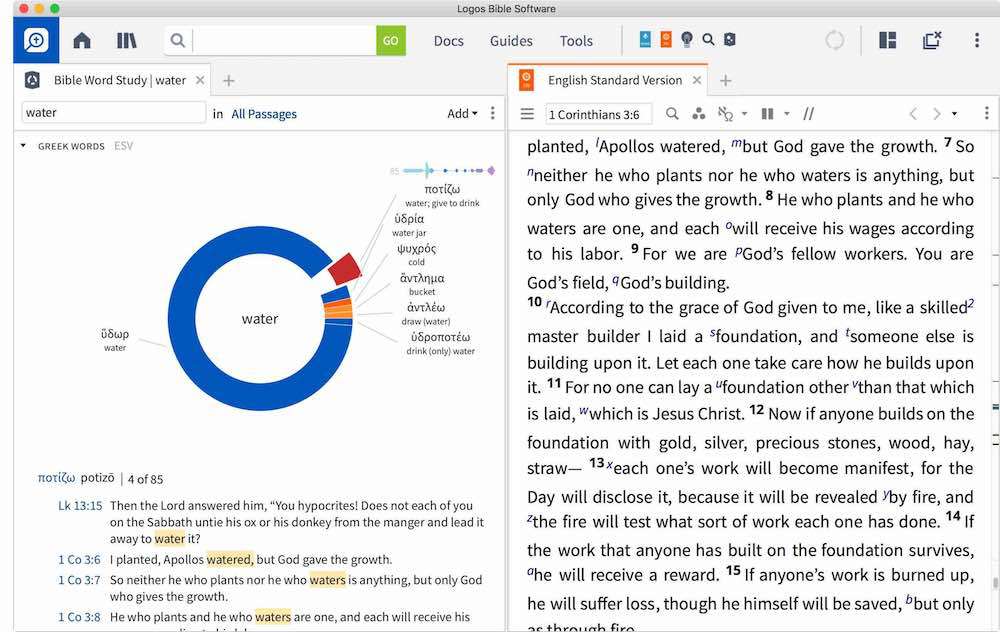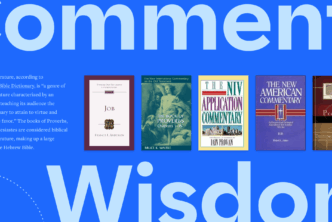By E. Tod Twist
If you’ve ever pondered the meaning of life in “I am the way, the truth, and the life” (John 14:6) or even in “Christ who is your life” (Col. 3:4), this excerpt from Bible Word Studies: A How-to Guide will show you how to dig a little deeper. See how to do a Bible word study on the word life—it’s not as complicated as you may think!
***
In high school, football was my life. I was mildly terrible, but I loved it. From the camaraderie of the huddle to the strategy behind the plays, my teenage hubris was hooked. I gained 40 pounds in six months, and I was finally going to get some respect. Then it happened: a life-threatening injury resulting in head trauma and emergency surgery. Miraculously, I came through the event without brain damage, but I could never play football again. Even though I had my life back, all I could think about was losing football. In fact, I spent many sleepless nights wishing that I had died.
Jesus has something to say about the misery that gripped me. In one of his final speeches to his disciples, Jesus answers Thomas’ request for traveling directions with a profound lesson: “I am the way, and the truth, and the life. No one comes to the Father except through me” (John 14:6). Let’s consider what it means for Jesus to be “life.”
Step 1: Make the switch to Greek and establish a preliminary definition
The simplest way to find the Greek word behind an English translation is to use a reverse interlinear such as the esv English-Greek Reverse Interlinear. The Greek word behind “life” in John 14:6 is zōē (ζωή). Now that we know this, we can look up the word in a lexicon (an original-language dictionary).
Step 2: Briefly track the word through Greek literature
When we look up zōē in A Greek-English Lexicon of the New Testament and Other Early Christian Literature or in the Liddell and Scott Greek-English Lexicon, we learn that in Greek literature zōē generally means “life” as opposed to “death.” Lexicons note that the meaning of zōē in the New Testament refers only to a person’s existence—especially in relation to death—which indicates a narrowing of meaning from earlier usage.
Step 3: Survey the New Testament usage and note examples from the same author
The idea of zōē as the opposite of death is heightened in the New Testament by its association with the sense of transcendence, especially in phrases such as “eternal life” (John 3:16). It’s not just a statement about life and death, but about eternal life opposed to death itself. Within the Gospel of John, about half of the occurrences of zōē appear in the phrase “eternal life” (e.g., John 3:16; 6:47). John talks about eternal life more than any other New Testament writer; half the occurrences of this phrase occur in his writings.
Step 4: Revisit the passage to determine the meaning in context
Considering the number of occurrences of the word zōē in relation to “eternal life” in the Gospel of John, it’s quite likely that in John 14:6 Jesus was referring to “eternal life.” But before we draw that conclusion, we need to see whether it holds true in the narrow context of Jesus’ exact words: “I am the life.”
“I am” statements are common in John, most notably in Jesus’ implicit claim of divinity when he said, “before Abraham was, I am” (John 8:58). Using a commentary, such as the Holman New Testament Commentary, we learn that this claim is based on God’s name (“I Am Who I Am” in Exod 3:14) and God’s special relationship to Israel (“I am the LORD [Yahweh]” in Isa 42:6). But Jesus didn’t only claim a connection to God with his use of “I am” statements. He also used “I am” to introduce other statements about himself, including “I am the bread of life” (John 6:35) and “I am the true vine” (John 15:1). Jesus’ statement “I am the life” in John 14:6 seems to fit this pattern.
The closest context for zōē in John 14:6 is Jesus’ use of “the life” to talk about himself, a phrase that also occurs at the beginning of the Gospel of John: “the life was the light of men” (John 1:4). We do not know the precise sense that John intended with “the life,” but he seems content to leave it unspecified. Whether “the life” means eternal life in the future or everyday life in the present, John would probably say that zōē is both—and more.
As a teenager, sidelined by injury and overwhelmed by misery, I was made to live the truth that “Jesus is my life.” Now, as an adult, I realize that Jesus also means more—he is my eternal life. I can’t wait until later to live that “life” in eternity with him.
***
Bible Word Studies: A How-to Guide is available now from Lexham Press. To help make your Bible word studies easier and possible from anywhere, get Logos Bible Software for free. With a click or tap, you can dig deeper into a word—its meaning in the original language, dictionary definition, use throughout the Bible, and more.








